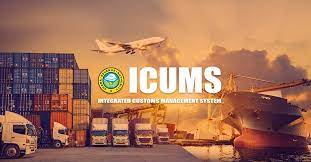Ghana’s Trade Battle: ICUMS Scores Big While Critics Miss the Bigger Picture
- IEAG Defends ICUMS, Highlights Revenue Gains and System Efficiency
The Importers and Exporters Association of Ghana (IEAG) has strongly defended the Integrated Customs Management System (ICUMS) against recent criticism, dismissing allegations that the Unique Consignment Reference (UCR) system is flawed. In a firm response to a recent petition sent to the office of the President challenging the effectiveness of UCR integration, the IEAG stated that the concerns raised reflect a fundamental misunderstanding of how international trade data-sharing and customs operations work.
According to the Association, the claims made against UCR implementation are not only misleading but also fail to acknowledge the complex realities of global trade data exchanges, which are governed by strict bilateral agreements between nations.
UCR and ICUMS: A System Built for Efficiency
ICUMS, which was introduced to replace the outdated Ghana Customs Management System (GCMS) and Westblue system, has been hailed as a major step forward in Ghana’s trade facilitation. The IEAG insists that the system has significantly improved customs efficiency, revenue mobilization, and trade transparency, making it one of the best customs solutions Ghana has implemented.
The association also disclosed that since its implementation in June 2020, the Integrated Customs Management System (ICUMS) has significantly bolstered Ghana’s revenue collection. Between June 2020 and December 2024, ICUMS generated well over GH₵125 billion, despite the country’s economic challenges.
Building on this momentum of year on year, the system amassed a total of GH₵16.02 billion for the government in 2021; in 2022, the revenue moved to GH₵22.18 billion. According to the IEAG, the revenue has been rising, with the ICUMS generating some GH₵30.67 billion in 2023, and finally in 2024, which is just last year, the ICUMS raked in GH₵44.39 billion. These figures above are far over and above what the oil regime (GCNET and West Blue), whose revenue never exceeded the average of GH₵15 billion per year, averages for operating for close to 20 years.
On the matter of UCR, the IEAG emphasised that no single country has an automatic cross-border UCR integration system, as international trade operates within the confines of sovereign data protection laws. The expectation that Ghana should have a globally integrated, real-time UCR system is both unrealistic and uninformed, the association stated.
“Data sharing between customs authorities across countries is a matter of national security and sovereignty, not a technical flaw of ICUMS,” said the Executive Secretary of the IEAG. “There is no central global system that allows automatic retrieval of trade data without formal bilateral agreements. To suggest otherwise is to misunderstand how international trade facilitation works.”
A Policy Matter, Not a Systematic Failure
The Association stressed that the UCR debate is a policy issue—not a technical problem within ICUMS. Governments worldwide determine the extent to which trade data can be shared across borders, prioritizing national security and regulatory compliance. The IEAG dismissed accusations of sabotage within ICUMS as baseless and uninformed, arguing that critics of the system lack a proper grasp of international customs protocols.
“ICUMS has already proven to be a game-changer for Ghana’s customs and trade facilitation,” the statement added. “It is simply inaccurate to blame ICUMS for issues that are rooted in international policy and data security regulations.”
ICUMS Delivers Results Despite Misinformation
The IEAG highlighted ICUMS’ numerous successes, including:
- Streamlining Customs Processes: Automation has drastically reduced clearance times and minimized bureaucratic inefficiencies.
- Increasing Government Revenue: ICUMS has improved transparency and accountability, reducing leakages in revenue collection.
- Improving Trade Competitiveness: Ghana’s adoption of ICUMS has positioned it as a leader in trade facilitation within the West African sub-region.
- Enhancing Anti-Corruption Efforts: The system limits human interference, reducing opportunities for corruption and fraud.
A Call for Constructive Engagement, Not Misinformation
Rather than engaging in misleading criticism, the IEAG is calling on all stakeholders to support ICUMS and work collaboratively to address any emerging challenges. The Association emphasized that technological advancements in customs systems require time to mature, and dismissing ICUMS due to misconceptions about UCR is counterproductive to Ghana’s trade goals.
“We must not allow misinformation to derail a system that has already proven its worth,” the statement concluded. “ICUMS is here to stay, and we urge the government and all trade stakeholders to continue investing in its enhancement rather than entertaining baseless critiques.”
With the IEAG standing firmly behind ICUMS, it remains clear that Ghana’s customs modernization strategy is on the right track—despite attempts by uninformed critics to cast doubt on its efficiency.



